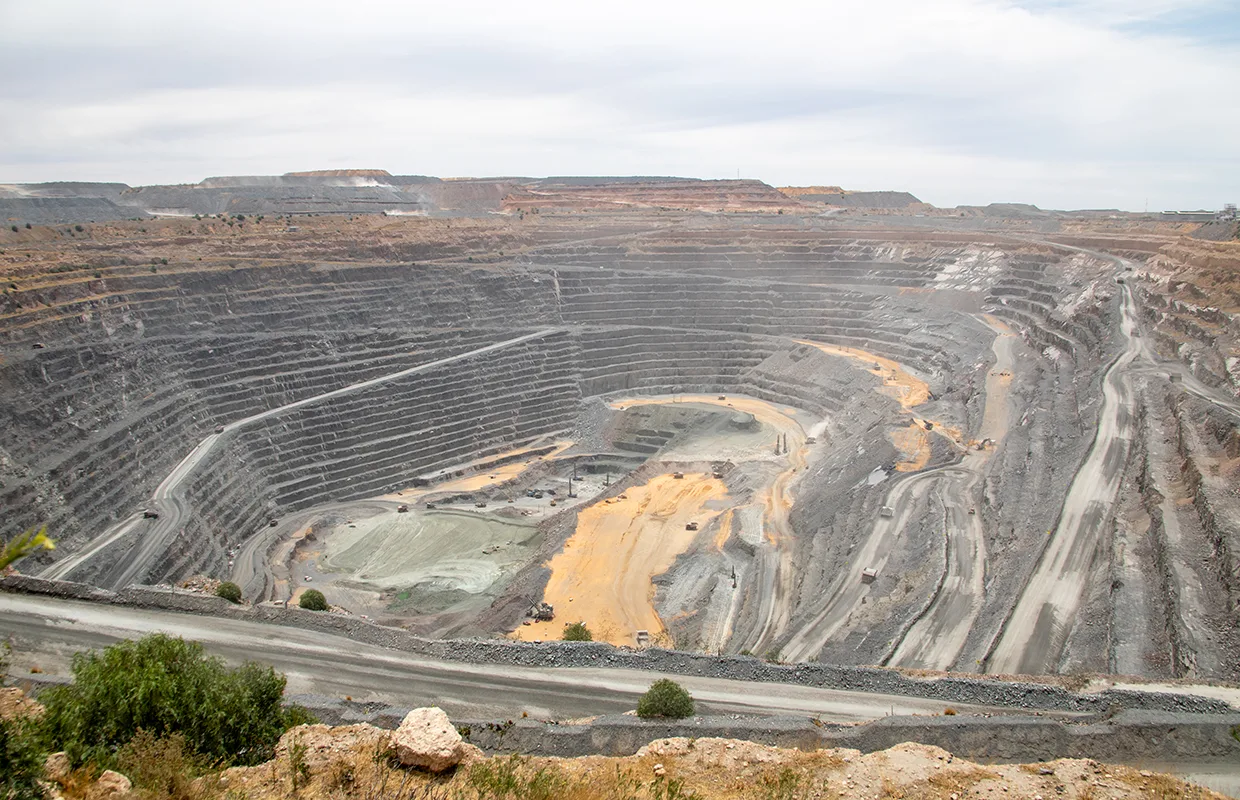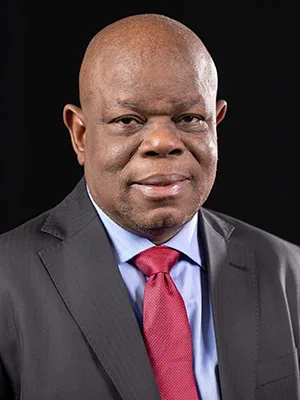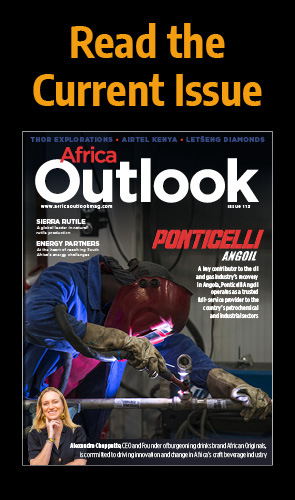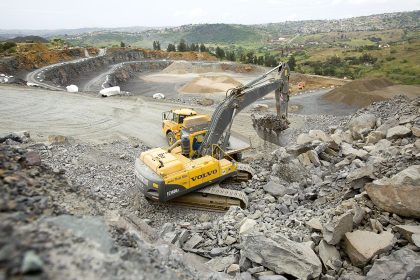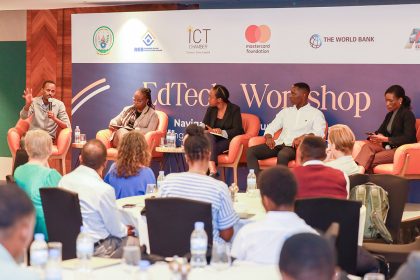Producing some of the world’s most precious diamonds, Debswana Diamond Company’s four cutting-edge mine sites are key drivers of Botswana’s socioeconomic growth. Andrew Maatla Motsomi, CEO, delves deeper.
BRIGHTENING BOTSWANA’S FUTURE
At the helm of Africa’s flourishing diamond production, Botswana’s diamond mines are a key pillar of the industry’s success.
Equally owned in a joint venture between the Government of Botswana and De Beers Group (De Beers) – a world-leading diamond conglomerate – Debswana Diamond Company (Debswana) is at the heart of the nation’s mining landscape.
“This highly prosperous public-private partnership (PPP) is often hailed as one of the most successful in the world and has enabled us to become a leading diamond producer,” opens Andrew Maatla Motsomi, CEO.
Established in 1969, Debswana’s journey over the last five decades has been characterised by both value and volume.
Operating four major diamond mine sites across Botswana, the company has grown to become a cornerstone of the national economy, making substantial contributions to the country’s GDP, foreign exchange (ForEx) earnings, and government revenue.
Debswana’s economic impact extends far beyond its financial contributions as one of the largest private sector employers in Botswana, with a workforce comprising over 5,000 staff and 6,000 contractors. As such, it facilitates vital employment opportunities and supports numerous livelihoods.
In light of this, the company is deeply committed to mining safely, optimally, and responsibly, prioritising the well-being of its staff and surrounding communities whilst also ensuring its operations adhere to the highest safety standards.
As the backbone of Debswana’s success, it is also committed to empowering its workforce through continuous professional development, comprehensive training programmes, and career advancement opportunities.
“We are not only a leader in diamond production but also a key player in Botswana’s socioeconomic development, demonstrating a steadfast commitment to responsible mining and community upliftment,” Motsomi surmises.
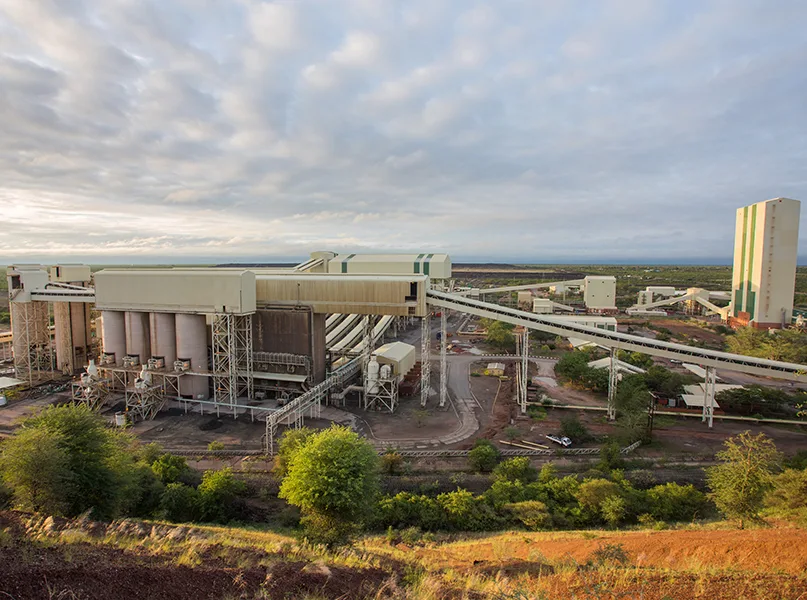
FORWARD-THINKING OPERATIONS
With four distinct mine sites, namely Letlhakane, Orapa, Damtshaa, and Jwaneng, the company’s portfolio has expanded exponentially and is only set to continue to flourish.
In fact, Debswana’s mining licenses were recently extended for an additional 25 years starting from 2029, allowing the company to maintain its critical role in transforming Botswana’s economy to become a middle-income nation.
“Our diamond mining activities have fuelled significant socioeconomic growth, contributing to national development through revenue generation, employment, and infrastructure,” Motsomi insights.
This is evidenced by the company’s Jwaneng underground project – a strategic initiative to ensure the continued operation of the mine beyond its Cut 9 pit, thus ensuring long-term sustainability and economic contributions to Botswana.
Divided into four phases, the early works phase was initiated in 2022 and involved implementing the preparatory infrastructure and safety measures to set the groundwork for subsequent phases.
The exploration access development phase then commenced in May last year at a cost of BWP13.6 billion and established sufficient underground access for diamond sampling and evaluation, preparing critical infrastructure for the next stage.
Phase 1 mining is set to develop underground mining infrastructure and commence production soon, whilst Phase 2 mining will focus on further underground development to extend Jwaneng’s life beyond 2033.
From a strategic perspective, the underground project has proven vital to the company’s prosperity, as the mine site contributes approximately 70 percent of Debswana’s total profits.
“Transitioning to underground mining ensures sustainable diamond extraction beyond the limitations of open-pit mining. Additionally, the project will maintain employment and shareholder returns, benefitting Botswana’s national development,” Motsomi attests.
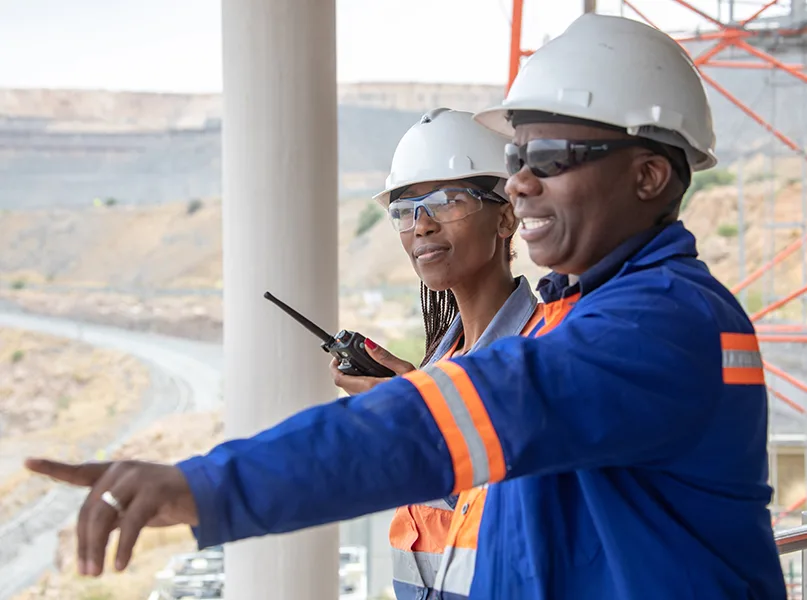
ORAPA CUT 3
Debswana’s Orapa Cut 3 project aims to extend the life of the mine site to at least the mid-2050s, as well as deepen and widen the existing pit to allow access to additional diamond-bearing ore.
The project involves several key phases, including a feasibility study that is currently underway and is set to prepare for commissioning this year, with waste stripping scheduled for 2028.
The mine’s first diamond sales are anticipated to commence in 2034 and expected to align with the projected depletion of existing orebodies.
The project will also see the upgrading of current facilities as well as the construction of new ones to support increased production and ensure a smart, connected operation with enhanced safety and efficiency.
Alongside contributing significantly to the nation’s economy, the company strives to leverage the latest technological advancements and align with industry trends to optimise the project’s progress.
On top of this, Orapa is expected to create additional direct and indirect employment opportunities, benefitting the Boteti district – where the mine is situated – and its surrounding communities.
“Both projects are vital for Debswana as they ensure long-term sustainability and economic contributions to Botswana, supporting employment and leveraging technological advancements for efficient and safe mining operations,” Motsomi highlights.
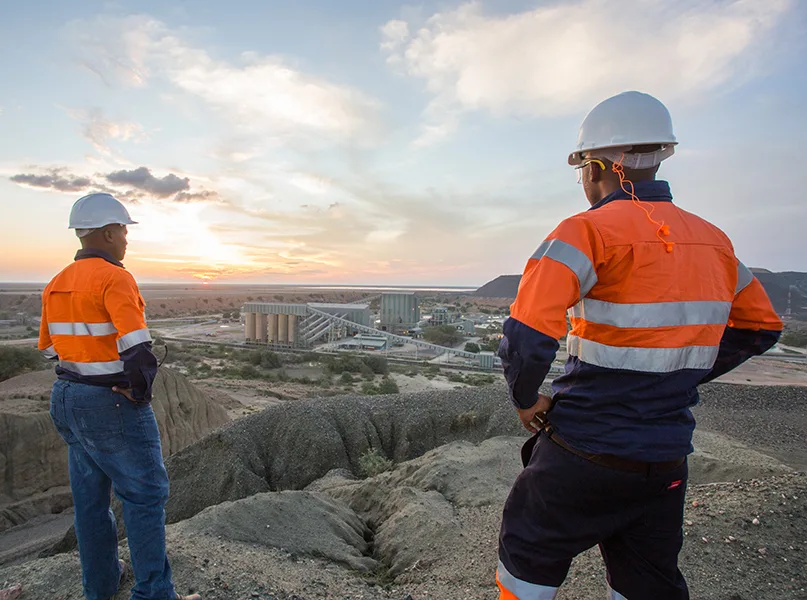
DEVOTED TO SUSTAINABILITY
Environmental awareness is fundamental to Debswana’s operations and key to its long-term vision.
Indeed, sustainability is integrated into every facet of the business and central to its environmental, social, and governance (ESG) strategy.
“We are committed to advancing industry standards, enhancing transparency, environmental stewardship, and biodiversity, and improving the livelihoods of the communities where we operate as well as the entirety of Botswana,” Motsomi sets out.
From this perspective, Debswana’s priorities include minimising its environmental footprint, promoting social development, and ensuring robust governance practices.
By embedding sustainability into its business strategy and decision-making processes, the company aims to create long-term value for stakeholders and reach its environmental targets.
One such objective is to achieve carbon neutrality by 2030, which it hopes to reach by reducing reliance on diesel, integrating renewable energy sources, and improving efficiency across its operations.
Additionally, Debswana is proudly piloting electric vehicles (EVs) at its mine sites and exploring the use of biofuels as a cleaner alternative to diesel.
Water conservation is another critical focus for the company, particularly given the scarcity of the resource in Botswana.
In light of this, Debswana has pledged to reduce its freshwater withdrawal by 50 percent by 2030, employing advanced methods such as Ultrasep technology and high-rate thickeners to optimise water recovery and recycling.
Debswana also repurposes any treated sewage effluent for irrigation and strives to improve water retention to minimise waste disposal costs.
“Our commitment to biodiversity is evident through our investment in game parks at the Orapa and Jwaneng mine sites, which serve as sanctuaries for wildlife and hubs for education, research, and community engagement.
“They also support a diverse range of species and contribute to ecological research and conservation efforts.”
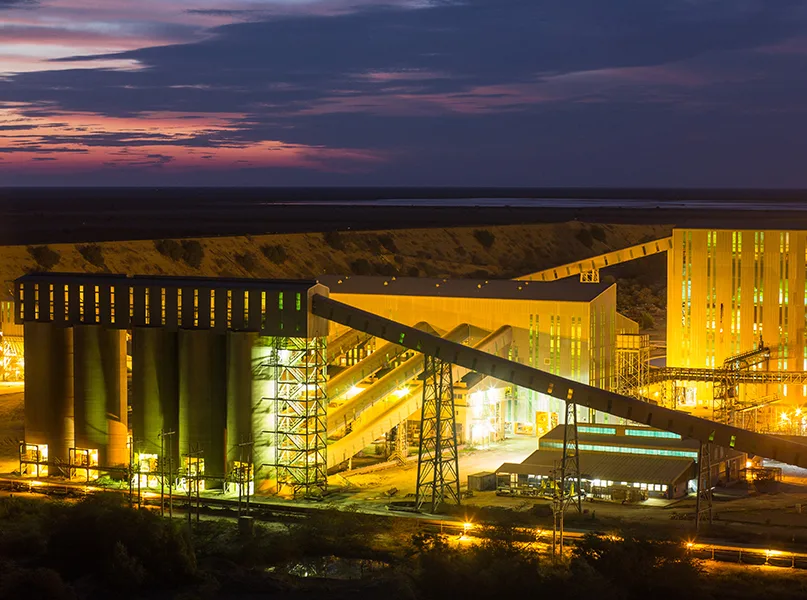
UPLIFTING THE NATION
Alongside its environmental commitments, Debswana is dedicated to making a meaningful contribution to the development of communities around its mines and across the nation.
“Through various socioeconomic programmes, the company strives to enhance the quality of life for those living in operational areas, thereby making it brilliant for many,” smiles Motsomi.
Debswana’s community outreach programmes are designed to support and uplift host communities and ensure the benefits of its activities extend well beyond the life of the mines.
Indeed, the company invests in critical infrastructure such as building and maintaining roads, classroom blocks, and water supply systems to improve local living standards and support regional economic development.
Furthermore, Debswana’s corporate social investment (CSI) programme is implemented through its ESG framework, which seeks to minimise risks, manage impacts, and maximise socioeconomic benefits.
Debswana equally supports access to local healthcare, operating two Council for Health Service Accreditation of Southern Africa (COHSASA)-accredited hospitals at Jwaneng and Orapa, serving 200,000 patients annually.
“We were also one of the first companies globally to introduce anti-retroviral therapy for employees and their families in 2001, significantly contributing to Botswana’s fight against HIV and AIDS,” Motsomi points out.
Nearly two decades later, during the COVID-19 pandemic, the company allocated BWP50 million towards community interventions, including the sourcing of personal protective equipment (PPE) for clinics, vaccination centres, and isolation facilities.
“These initiatives demonstrate our commitment to responsible mining and creating a legacy that extends far beyond the lifespan of the mines.”
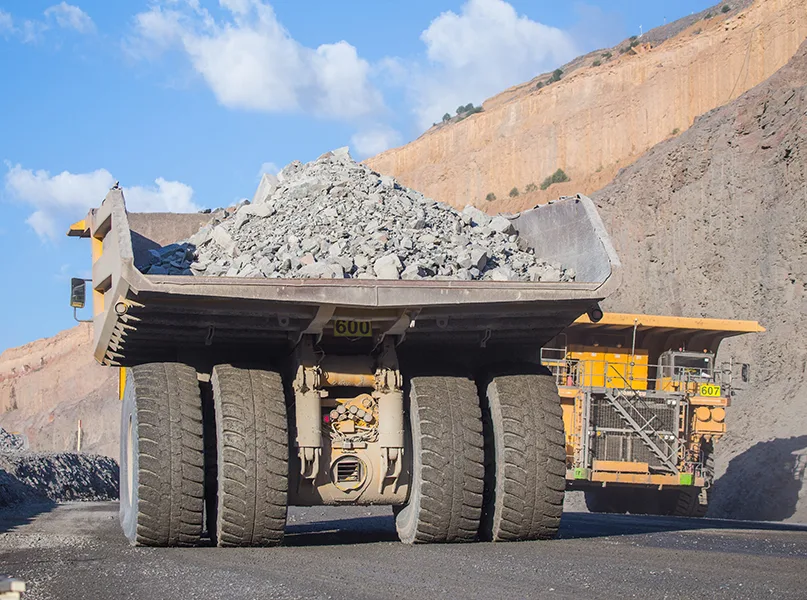
FACILITATING CHANGE
To effectively manage its social initiative activities, Debswana recently launched its Socioeconomic Development (SED) Strategy for 2024 to 2028, aimed at promoting sustainable and inclusive economic development in its host communities and across Botswana.
In particular, the strategy focuses on economic diversification by developing non-mining sectors such as agriculture, manufacturing, and tourism, which in turn contribute to job creation and local revenue generation.
The SED strategy also emphasises building strong partnerships with government, civil society, and the private sector to leverage resources and ensure participatory development.
Equally, it prioritises having a sustainable impact by implementing environmentally responsible mining practices and supporting the development of micro, small, and medium-sized enterprises (MSMEs).
“Through these efforts, Debswana aims to create resilient and thriving communities, ensuring that the benefits of mining extend well beyond the life of mines,” closes Motsomi.
As the company looks ahead to the coming year, its primary focus will remain on its strategic Jwaneng and Orapa expansion projects, which will prove crucial for extending the life of its mines and ensuring the long-term sustainability of shareholders and, more importantly, the people of Botswana.



